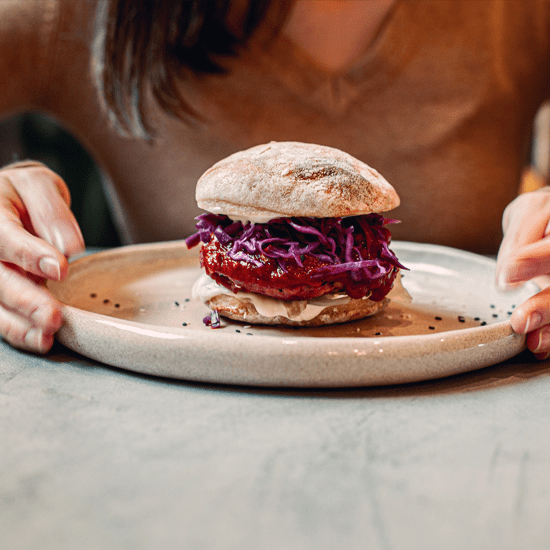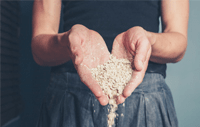
Livestock products – like meat and dairy – are responsible for 18% of greenhouse gases. That’s as much each year as from all cars, trucks, airplanes and ships combined. And it means that the more meat and dairy we continue to eat, the more destructive climate change will continue to be.
To meet global greenhouse gas emission goals for 2050, it’s recommend that wealthy nations cut their beef, lamb and dairy consumption by 40%. Doing so will mean meat lovers will have find other foods to love if we have any hope of saving our way of life on this planet.
We’re not saying that you have to give up meat and dairy entirely, but here are a few ways to eat less of it:
Beans, beans, the more you eat… Funny childhood rhymes aside, hearty legumes – from lima beans and chickpeas, to lentils and kidney beans and black-eyed peas – are all great stand-ins for meat in dishes like chili, tacos and stews. For instance you can replace 1lb of meat with 2 cups of cooked, drained lentils in many recipes, and swap chickpeas for chicken or turkey. Here are some more suggestions.
Plant-based meats: Growing in popularity and increasingly indistinguishable from real meats, plant-based burgers, meatballs, sausages and “chicken” nuggets are satisfying our meat cravings and helping save the planet. Keep in mind, however, many of these new products are high in sodium, saturated fats, sugar and potential allergens like soy, wheat and nuts.
Got not-milk? Making milk, of course, means raising cows and greenhouse gases too. Luckily, ingenious humans have come up with at least half a dozen milky alternatives that don’t come from animals – like soy milk and oat milk – all of which are more gentle on our environment.
Meatless Mondays: This global movement encourages people to reduce meat in our diets in a straightforward way – simply avoiding all meat and dairy and eating more fruits, vegetables and plant-based meals one day a week. Alone, it won’t get us to our climate change goals but if everyone stopped eating meat one day a week, we’d consume 14% less meat. More importantly, perhaps, the initiative increases awareness of our overconsumption of meat and may get many of us to eat less meat the rest of the week too.
How to you feel about eating less meat? Have you already cut back? Please share your tips and suggestions with the Shop Talk blog community.

Did you know: Against the grain?
Most of us associate grains with carbs but the fact is many grains are quite high in protein. Quinoa is perhaps the most famous example but barley, buckwheat, oats, wild rice, wheat and rye all have a healthy dose of protein. (Source)
